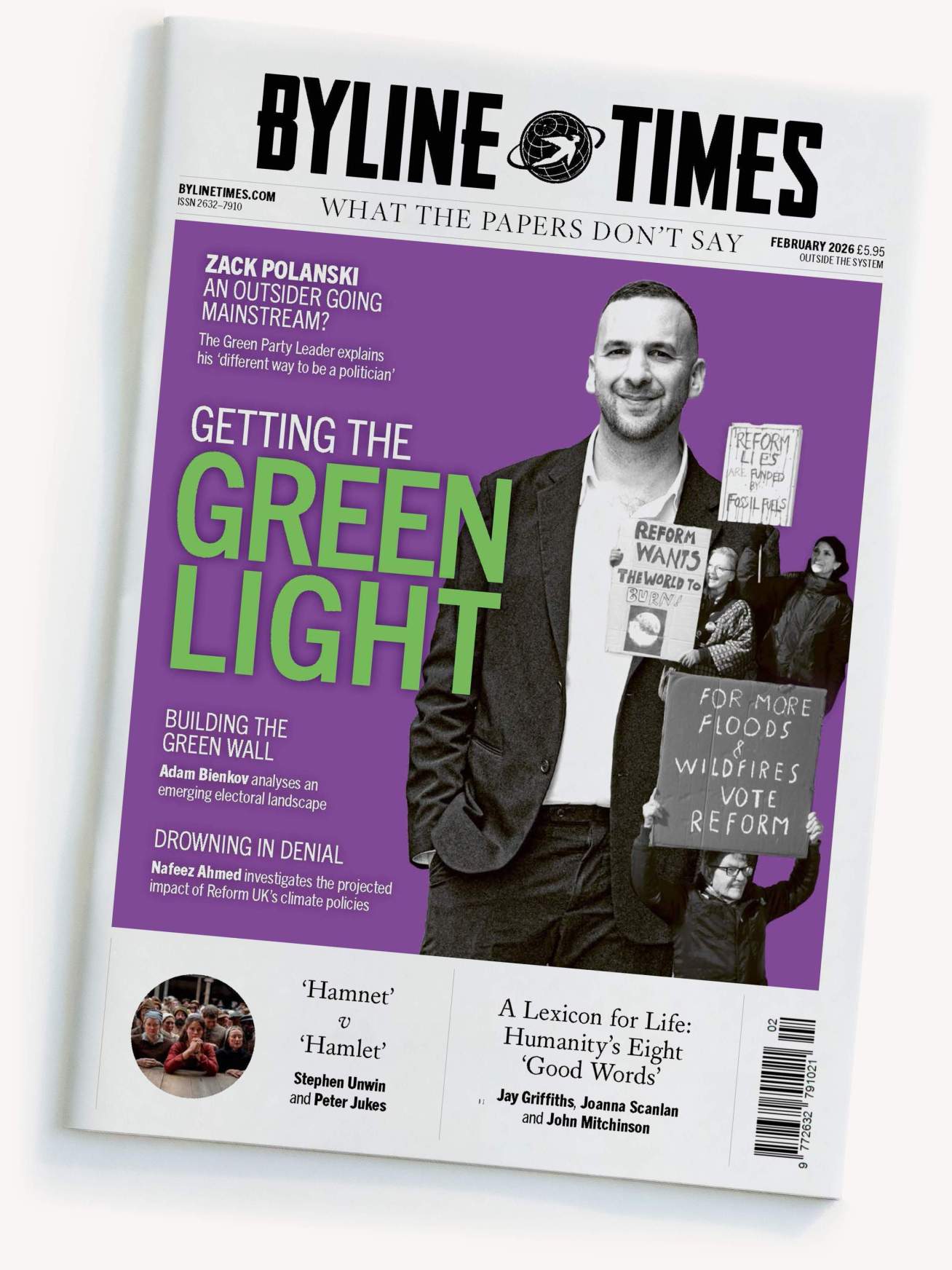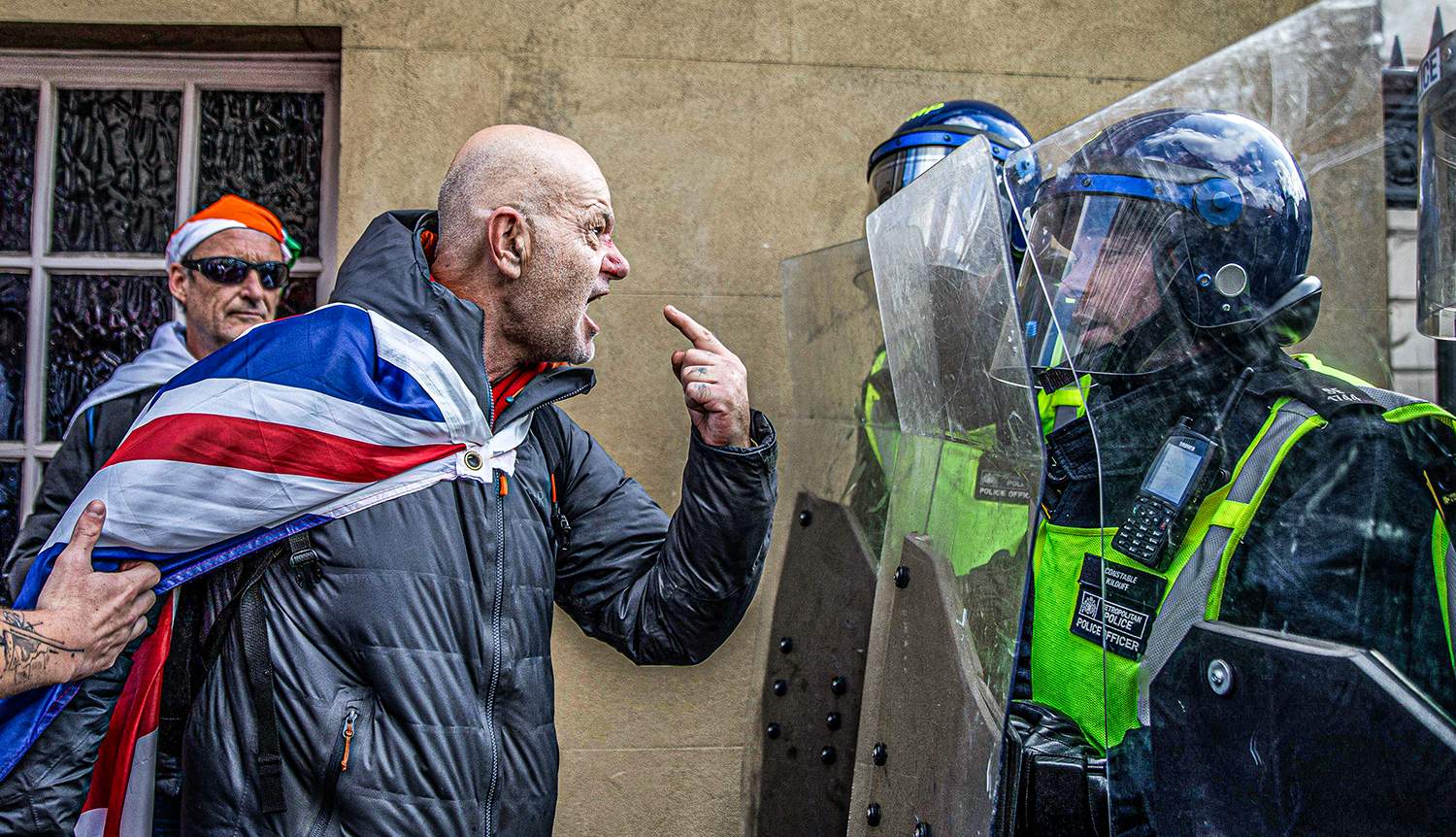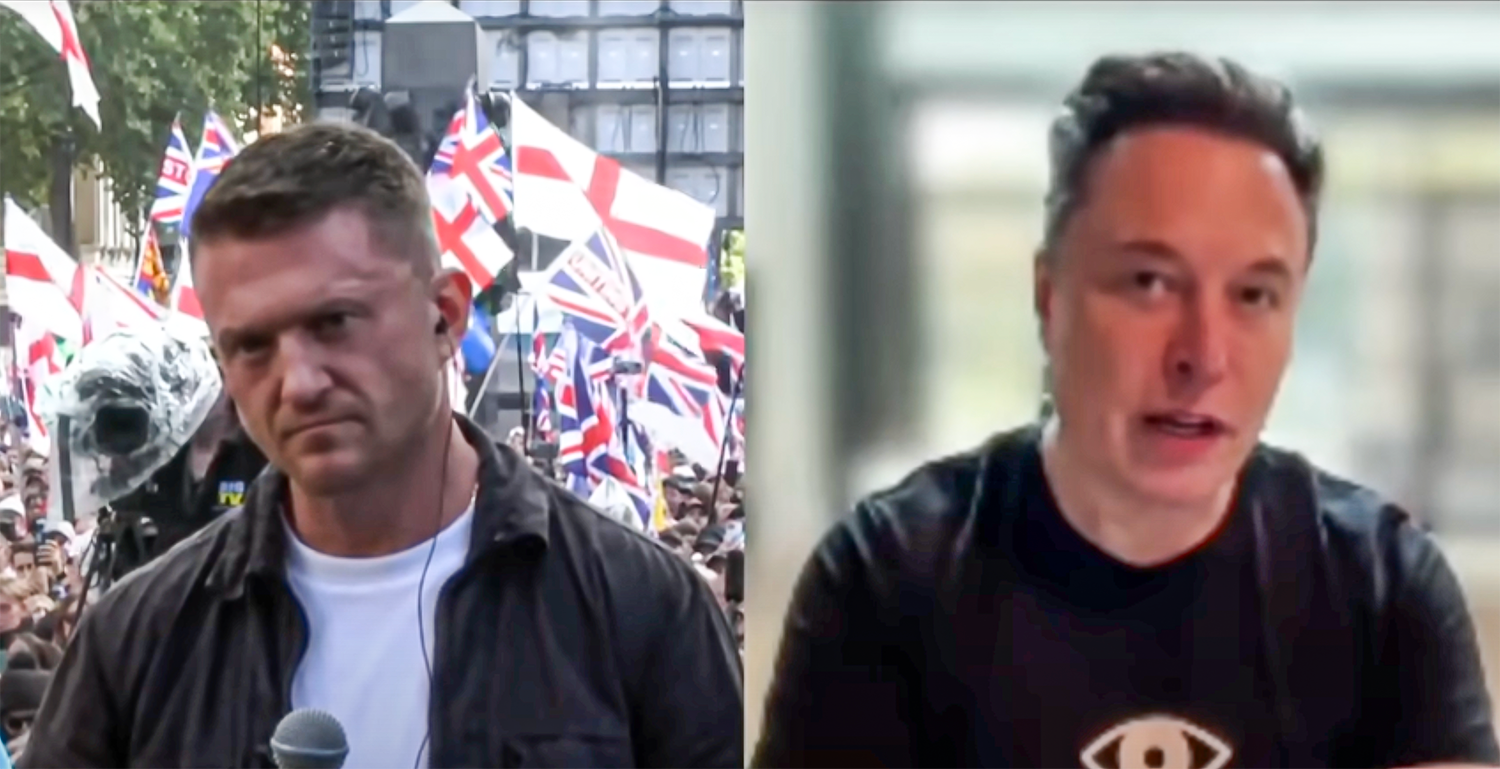
Read our Monthly Magazine
And support our mission to provide fearless stories about and outside the media system
Donald Trump’s state visit to the UK is the ultimate demonstration of soft power – combining the pomp and circumstance of the British Monarchy, with a series of events designed to showcase British pageantry and history at its finest. The visit will include overnight stays at Windsor Castle, cannon-fired royal salutes, military bands and parades, a carriage procession, a private visit to St George’s Chapel where the President will lay a wreath on the tomb of Queen Elizabeth II, a state banquet inside the castle, and a day of meetings at the Prime Minister’s country retreat at Chequers, where there will be more guards of honour, and an opportunity to tour the Winston Churchill archives.
The visit has been carefully designed both to flatter the President with ostentatious displays and exclusive viewings of historical items, and keep him away from the public eye as much as possible. This is to try to avoid encounters with anti-Trump demonstrators, or opportunities for him to make embarrassing off-the-cuff remarks – as occurred during his last state visit, when he kneecapped his host, Prime Minister Teresa May, by lavishing praise on Nigel Farage and Boris Johnson.
Who knows whether this charm offensive will work? Trump may just bask in the occasion, and play nice with the Royal Family, but let Starmer down as soon as he is back in the US. He could continue to play tough on tariffs, reject Starmer’s lobbying on Ukraine and Gaza, and let his associates continue to criticize the Starmer government as too woke, too weak on immigration, and too restrictive on free speech.
The UK at least still has the sense to recognize the value of this kind of soft power, which is uniquely suited to appeal to the President’s sense of vanity, and his reverence for the Royal Family. By contrast, Trump has shown himself to be deeply disdainful of soft power – particularly the American kind, based on the projection of US values, ideals, and culture to persuade other countries to support US policies.
The US launch of the Marshall Plan in 1947, pouring billions of dollars into European countries, including its World War 2 adversaries, Germany and Italy, is a classic example of a soft power success – turning a shattered, fractured region into one of the most stable and prosperous blocks in the world, creating a network of reliable US allies and massive market for US companies.
According to Thomas Garrett, a former Secretary-General of the Community of Democracies, and now a Professor at Cornell University teaching a course on American soft power, Trump is not just hostile to the concept of soft power, but actively working to dismantle the institutions which promote it – for example, through his administration’s closure or slashing of funding to a host of institutions which used to project a positive image of America to the world, such as the US Agency for International Development, the US Institute of Peace, the Voice of America, Radio Free Europe and Radio Liberty.
Garrett describes soft power as working best as a complement to, not a replacement for, hard power, which relies solely on coercion. He references Joseph Nye, the international scholar who popularized the concept of “soft power” in the 1980s, who answered the rhetorical question by Machiavelli: “Is it better to be feared than loved?” – by asserting “it’s both.” He also quoted the famous testimony of General James Mattis, then Head of Central Command, to Congress in 2013 when he said “If you don’t fund the State Department fully, then I need to buy more ammunition. The more that we put into the State Department’s diplomacy, hopefully, the less we must put into a military budget as we deal with the outcome of an apparent American withdrawal from the international scene.”
Garrett gave the Trump administration’s approach to the Houthis in Yemen as an example of how its almost exclusive focus on hard power was failing. In March this year, the US military spent over $1billion trying to bomb the Houthis into stopping their attacks on shipping in the Red Sea. It did not work. The US and the Houthis eventually cut a deal to stop attacking each other, but the Houthis are still firing on other nations’ shipping, and still attacking Israel directly. At the same time, the administration closed down a years-long low-profile democracy programme administered by the National Democratic Institute, which had successfully been building up an internal resistance movement to the Houthis. “We spent $1billion on a failed coercion strategy; and threw away a decades-long investment which was low cost and low risk.”
Another example was the administration’s decision to retreat from multilateral institutions. Garrett described how a European diplomat had once told him that when the US was not at the table, countries were more likely to vote with America’s opponents, such as China. US absence from the Human Rights Council, for example, opened the way for China to push its efforts to rewrite international law, undermining the concept of the universality of human rights.
ENJOYING THIS ARTICLE? HELP US TO PRODUCE MORE
Receive the monthly Byline Times newspaper and help to support fearless, independent journalism that breaks stories, shapes the agenda and holds power to account.
We’re not funded by a billionaire oligarch or an offshore hedge-fund. We rely on our readers to fund our journalism. If you like what we do, please subscribe.
Garrett accepted that US soft power had sometimes been damaged by perceptions of double standards. The US was often guilty of hypocrisy – not always leading by example, or allying itself with countries with poor human rights records, for reasons of expediency. But under previous Presidents, the US had always tried to maintain some balance. Now, the Trump administration was moving to a purely transactional approach. For example, it had dropped any objections to the military regime in Myanmar, and was willing to treat it as just another regular country. Trump had also repeatedly failed to uphold his redlines on Putin over Ukraine.
In some cases, this administration’s policy is actively contradictory – for example, demanding that other countries invest more in the US, as a precondition for securing a trade deal, while clamping down on foreign workers. The image of Korean workers, most of them here legally, at a Hyundai factory in Georgia recently being led away in shackles by ICE agents sent shockwaves through the business community. Although all the workers were given the option to stay on in America after their release, only one chose to stay. The rest flew back to Korea. This incident shattered the sense that the US was a good place in which to do business.
Other countries are equally outraged by images of their nationals being shackled and deported from America. One Canadian detainee had even died in ICE custody due to the stress.
Garrett told me he had recently come back from a visit to the South Pacific, where the only topic everyone wanted to talk about was ICE raids – the videos of women being dragged out of their cars by masked men, the raids at school drop-off sites etc. All this was affecting foreigners’ willingness to travel to the US, whether on business or pleasure. Far from easing off, the administration was doubling down by making it even harder and more expensive to get a US visa.
He described one particularly petty incident, when the administration had denied entry to a youth baseball team from Venezuela to take part in the Little League World Series. How could the US still host global sporting events in such circumstances?
Indeed, how could the US continue to host the UN, when it denied visas to some leaders, such as the head of the Palestinian Authority? It would be instructive to see how Trump was received when he addressed the upcoming UN General Assembly. Usually, American Presidents were treated with respect. This time could be different.
Under Trump, the very brand of America was being destroyed, with other countries, such as China, stepping into the void.
Garrett personally remains hopeful that the underlying American brand remains strong, and that American soft power can one day be restored. But I am more sceptical. Hardly a day goes by without some new report about groups or communities who have been harmed by the Trump administration’s policies – for example, just this week the BBC ran a story about Afghan women dying in childbirth because America has stopped supporting rural health clinics in Afghanistan. Countries across Africa are scrambling to fill the void left by USAID’s departure, particularly in the health field, where the US was once the leading provider of life-saving HIV and malaria drugs.
A recent peer-reviewed study conducted by researchers from the United States, Spain, Brazil and Mozambique estimated that 91 million deaths were prevented between 2001 and 2021 in low- and middle-income countries (LMICs) due to programs supported by USAID. It predicted that recent U.S. foreign aid cuts could lead to more than 14 million additional deaths by 2030, including more than 4.5 million children under age 5.
These are astonishing statistics – evidence of the hugely beneficial impact of American generosity, and the devastating potential consequences of American retrenchment.
Even if America’s soft power institutions can be rebuilt, I believe the reputation that once underpinned them has gone. Disillusion is a powerful emotion. Like for a company which has sold a faulty product, or a marriage in which one party has cheated, trust in America will be hard to recover.


